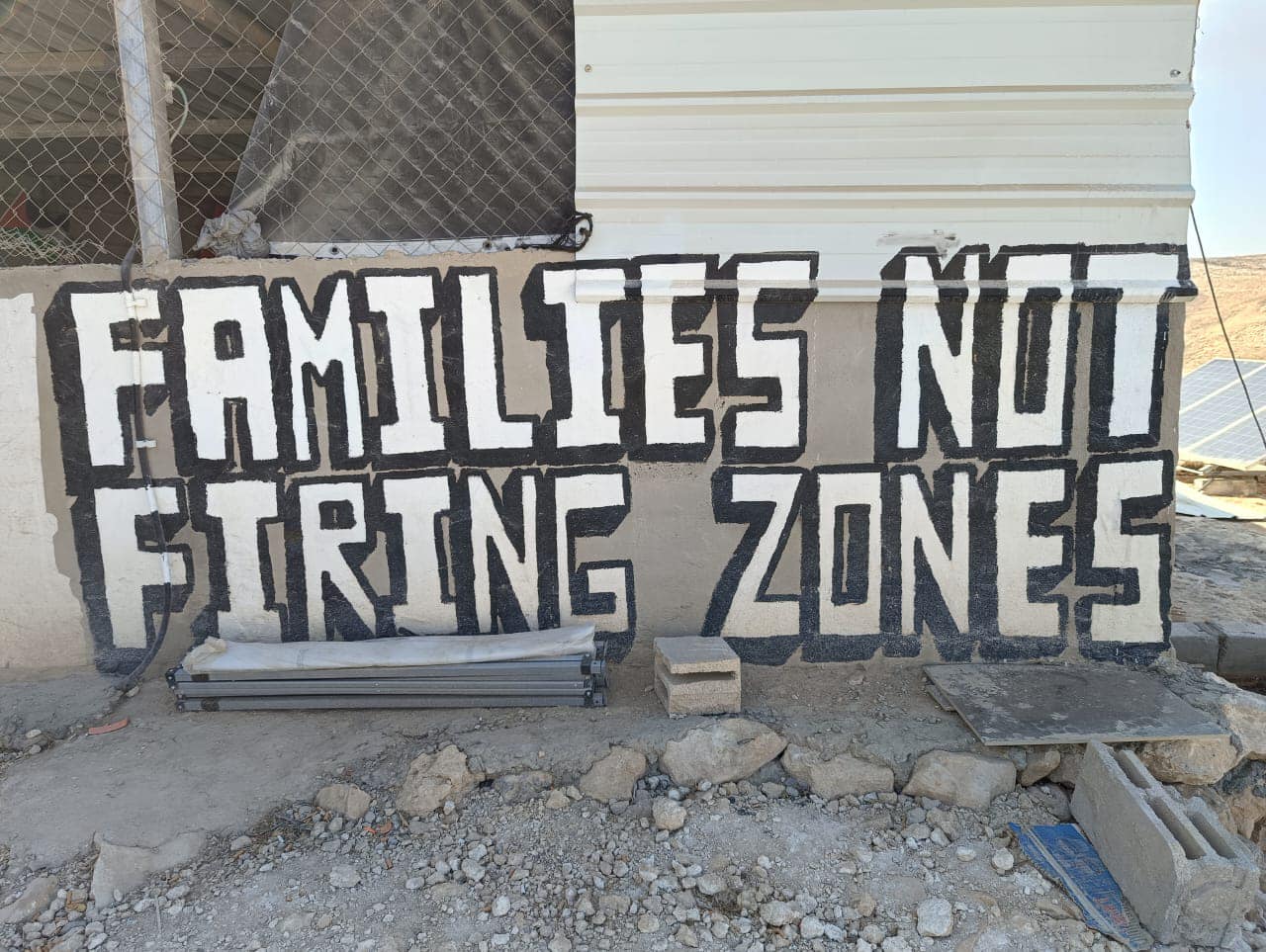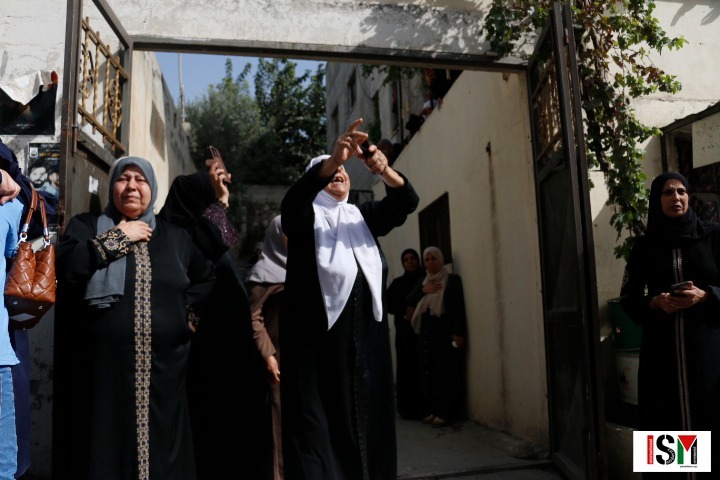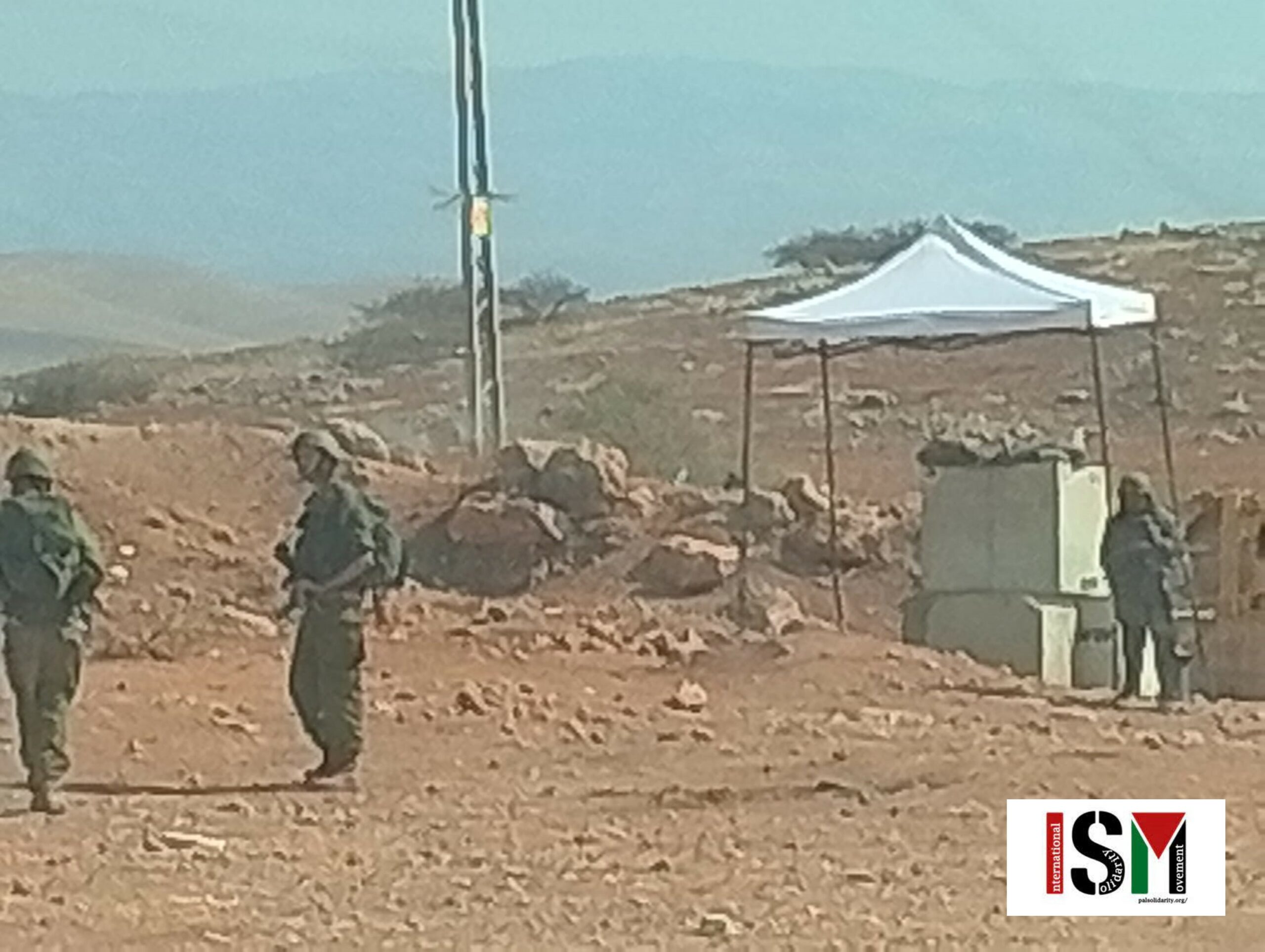Category: Journals
-
One day in Masafer Yatta
2 November 2023 | Masafer Yatta| International Solidarity Movement The testimony from a volunteer in Masafer Yatta, October 28. One day in the life of … … three villages in the South Hebron Hills ; Tuwani, Shi’b Al Batin and Khalet Al Dabaa. Villages that I’ve come to know over the past fortnight and…
-
Israeli crimes around the clock in the West Bank
22 October 2023 | International Solidarity Movement | Zawata by Diana Khwaelid Zawata town-Nablus. On the evening of Sunday, 22-10-2023, the Israeli Occupation Forces (IOF) stormed the town of Zawata, northwest of the city of Nablus. The residents of the town initially spotted Israeli special forces near the town’s cemetery. The Israeli occupation forces…
-
Colonial repression accelerates in Jordan Valley
17 October, 2023 | International Solidarity Movement | Jordan Valley Tuesday 17 Oct, an update from the Jordan Valley: Since Israel waged war on Gaza, on October 7, the situation in the Jordan Valley has deteriorated dramatically. Military checkpoints are often completely closed, and movements in and out of the Jordan Valley are severely…



